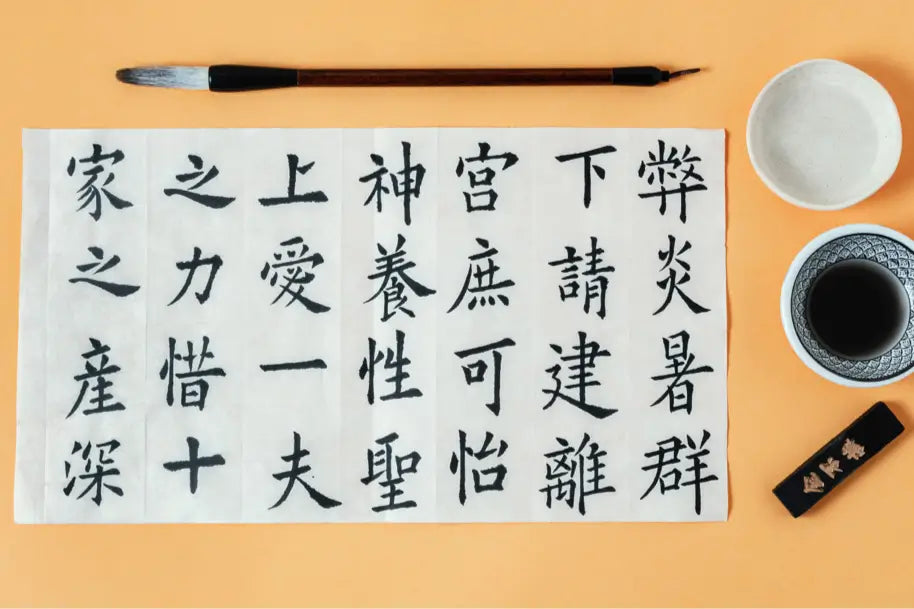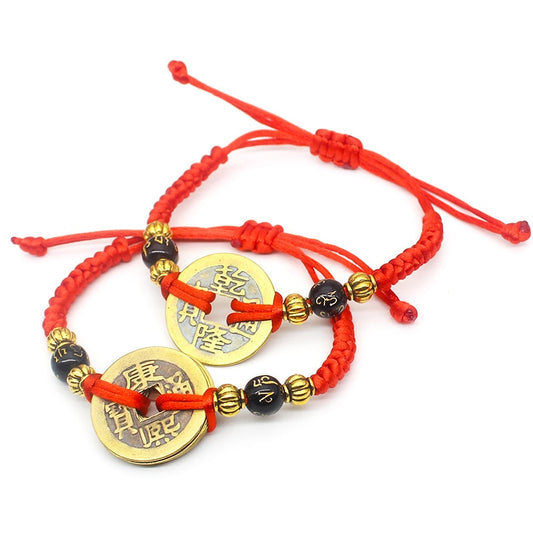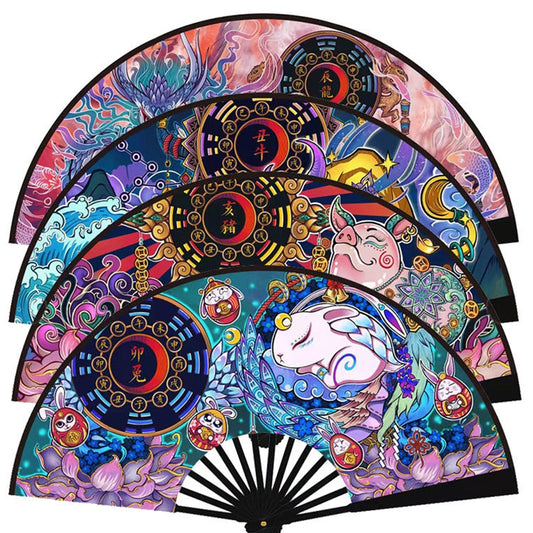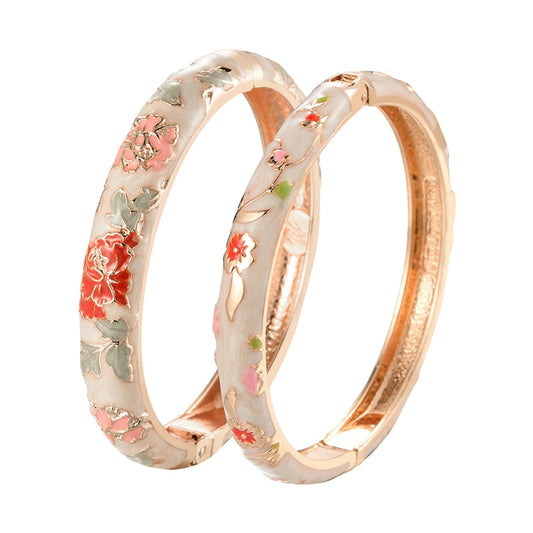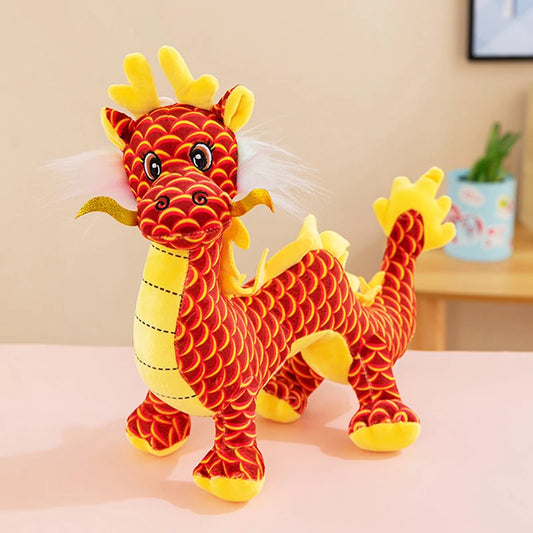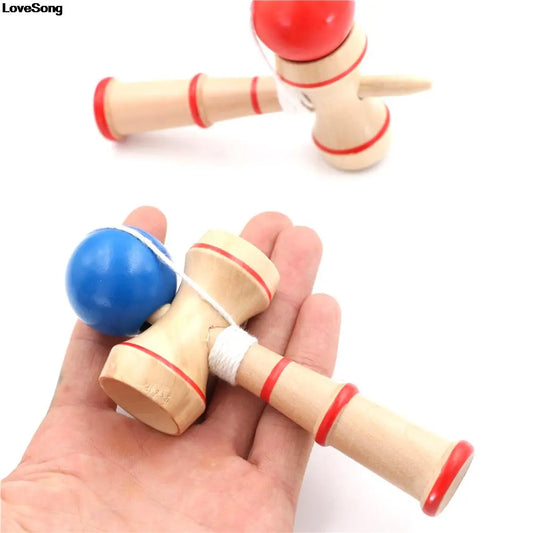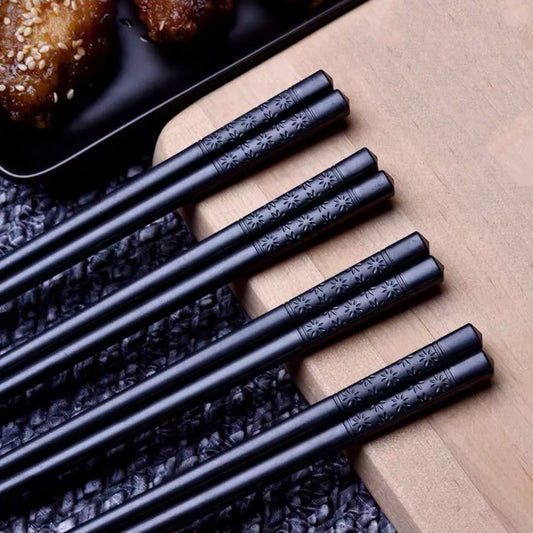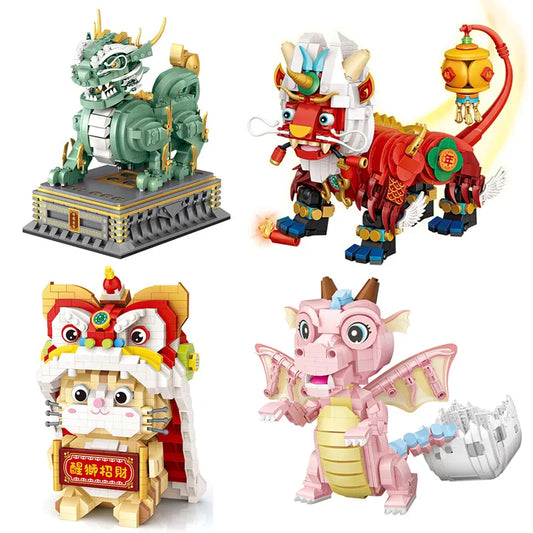Chinese surnames carry thousands of years of history, connecting families to dynasties, legends, and sometimes even poetic accidents. They are more than just identifiers on paper; they are cultural treasures. If you’ve ever wondered why there are so many Wangs, Lis, or Zhangs in the world—or wanted to discover the stories behind less common names like Gong, Shi, or Zuo—this guide is for you.
Below, we’ll explore the top 200 Chinese last names, their characters, pronunciation, and what they mean. Along the way, we’ll also peek into the history of surnames in China, how they spread across the globe, and why they matter in today’s society.
The Origins of Chinese Surnames
Chinese surnames trace back more than 4,000 years. Originally, clans identified themselves with “Xing” (姓) and “Shi” (氏). Xing was tied to noble maternal lineages, while Shi was related to land or titles. Over time, surnames became standardized and passed down through families.
By the Qin and Han dynasties, surnames had become essential for social organization, taxation, and record-keeping. This is why today’s Chinese surnames remain so consistent and carry clear etymological meanings, often linked to natural elements, virtues, or geography.

How Many Chinese Surnames Exist?
Scholars estimate there are more than 6,000 recorded surnames, but only about 100–200 surnames cover the vast majority of the Chinese population. The famous ancient book “Hundred Family Surnames” (Baijiaxing), compiled during the Song dynasty, lists many of the most common surnames that remain prevalent today.
In modern China, surnames like Wang 王, Li 李, Zhang 张, Liu 刘, and Chen 陈 dominate, making up tens of millions of people each.
Pronunciation Guide
To make things easier for non-Chinese speakers, we’ve included pinyin (the romanization of Chinese characters) alongside each surname, with approximate English pronunciation in brackets. While tones matter in Chinese, the simplified pronunciation here helps English speakers get close without confusion.
Top 20: The Giants of Chinese Surnames
These names are so common that you could throw a pebble in Beijing or Guangzhou and probably hit three Wangs, two Lis, and a Zhang. Let’s start with the heavyweights.
- Wang 王 [wahng] – “king,” linked to royal lineages.
- Li 李 [lee] – “plum,” connected to Tang emperors.
- Zhang 张 [jahng] – “to stretch,” from a legendary archer.
- Liu 刘 [lyoh] – “kill/destroy” in archaic sense; surname of Han emperors.
- Chen 陈 [chun] – “to display,” from the ancient Chen state.
- Yang 杨 [yahng] – “poplar tree,” symbol of growth.
- Huang 黄 [hwahng] – “yellow,” linked to the Yellow Emperor.
- Zhao 赵 [jow] – from Zhao state, first surname in Hundred Family Names.
- Wu 吴 [woo] – from Wu kingdom, symbol of culture and strength.
- Zhou 周 [joe] – “complete,” tied to Zhou dynasty.
- Xu 徐 [shoo] – “slow/gentle,” graceful surname.
- Sun 孙 [swen] – “grandchild,” representing continuation.
- Ma 马 [mah] – “horse,” symbol of vitality.
- Zhu 朱 [joo] – “vermilion red,” auspicious name.
- Hu 胡 [hoo] – often linked with northern tribes.
- Guo 郭 [gwor] – “outer city wall,” protector’s surname.
- He 何 [huh] – “what” or “why,” philosophical touch.
- Gao 高 [gow] – “high” or “tall,” lofty meaning.
- Lin 林 [lin] – “forest,” one with nature.
- Luo 罗 [law] – “net,” symbolizing connection and capture.
21–50: The Strong Middle
Still massively popular across China, these surnames spread through dynasties, migrations, and wars.
- Liang 梁 [lyahng] – “bridge/beam,” symbol of support.
- Song 宋 [sohng] – from Song dynasty heritage.
- Zheng 郑 [jung] – from Zheng state.
- Xie 谢 [shieh] – “thanks,” a polite surname.
- Han 韩 [hahn] – from Han state, core to Chinese identity.
- Tang 唐 [tahng] – from Tang dynasty, golden age surname.
- Feng 冯 [fung] – “gallop,” full of speed.
- Yu 于 [yoo] – “in, at,” humble but ancient.
- Dong 董 [doong] – “to supervise.”
- Xiao 萧 [shyow] – linked to graceful bamboo.
- Cheng 程 [chung] – “journey, process.”
- Cao 曹 [tsao] – famous from Cao Cao, Three Kingdoms.
- Yuan 袁 [ywen] – “long, extended.”
- Deng 邓 [dung] – from ancient Deng state.
- Xu 许 [shoo] – “to allow.”
- Fu 傅 [foo] – “teacher, tutor.”
- Shen 沈 [shun] – “deep.”
- Zeng 曾 [dzuhng] – “once,” ancient philosopher Zengzi.
- Peng 彭 [puhng] – booming like a drum.
- Lü 吕 [lyü] – double-mouthed surname, ancient clan.
- Su 苏 [soo] – “revive,” also Suzhou city.
- Lu 卢 [loo] – “cottage.”
- Jiang 蒋 [jyahng] – river, also Chiang Kai-shek’s surname.
- Cai 蔡 [tsai] – state of Cai.
- Tian 田 [tyen] – “field,” symbol of agriculture.
- Ye 叶 [yeh] – “leaf,” family tree imagery.
- Wei 魏 [way] – Wei kingdom, power surname.
- Xia 夏 [shyah] – from Xia dynasty, one of the earliest.
- Du 杜 [doo] – “stop,” also a famous Tang poet Du Fu.
- Ding 丁 [ding] – “nail, man,” sturdy surname.
51–100: Classic and Historic
A mix of noble clans, poetic imagery, and regional surnames.
- Ren 任 [ren] – “to assign, duty.”
- Lu 陆 [loo] – “land.”
- Jiang 江 [jyahng] – “river.”
- Cui 崔 [tsway] – “high, towering.”
- Zhang 常 [chahng] – “constant, always.”
- Tan 谭 [tahn] – “deep pool.”
- Fan 范 [fahn] – “model, pattern.”
- Hu 胡 [hoo] – second form, tied to northern tribes.
- Feng 冯 [fung] – duplication, galloping strength.
- Yu 余 [yoo] – “surplus, extra.”
- Shi 石 [shir] – “stone.”
- Yao 姚 [yao] – “elegant,” surname of legendary Emperor Yao.
- Pan 潘 [pahn] – “waterbank.”
- Dai 戴 [dye] – “to wear, respect.”
- Xia 夏 [shyah] – summer/dynasty.
- Zhong 钟 [joong] – “bell.”
- Wei 韦 [way] – “tanned leather.”
- Shi 施 [shir] – “to bestow.”
- Jin 金 [jin] – “gold.”
- Tao 陶 [tao] – “pottery,” Tao Yuanming the poet.
- Jiang 蒋 [jyahng] – repeated form, political history.
- Qi 齐 [chee] – Qi state, “neat.”
- Hou 侯 [hoe] – noble title “marquis.”
- Mao 毛 [mao] – “hair, feather,” Mao Zedong.
- Gong 龚 [goong] – “respectful.”
- Shao 邵 [shao] – Shao clan, music-loving.
- Qin 秦 [chin] – Qin dynasty, unifier of China.
- Yin 尹 [yin] – “to govern.”
- Bao 包 [bao] – “wrap,” Bao Zheng the just judge.
- Shi 石 [shir] – doubled stone surname.
- Wan 万 [wahn] – “ten thousand.”
- Kou 寇 [koh] – “bandit,” fierce name.
- Bai 白 [bye] – “white.”
- Meng 孟 [mung] – eldest child, philosopher Mencius.
- Qian 钱 [chyahn] – “money, coin.”
- Yan 严 [yen] – “strict.”
- Hua 华 [hwa] – “splendid, China.”
- Dou 窦 [doh] – ancient clan surname.
- Liang 梁 [lyahng] – “bridge.”
- Cheng 程 [chung] – repeated surname, “journey.”
- Zhong 仲 [joong] – second-born son.
- Xiong 熊 [shyoong] – “bear.”
- Bian 边 [byen] – “border.”
- Tang 唐 [tahng] – repeated surname.
- Shi 史 [shir] – “history.”
- Mo 莫 [mo] – “do not, nothing.”
- Cheng 成 [chung] – “to succeed.”
- Kang 康 [kahng] – “health.”
- Zhuo 卓 [jwor] – “outstanding.”
- Qiu 邱 [chyoh] – “hill.”
101–150: Rare but Resonant
These surnames carry poetic meanings, often less common but rich in heritage.
- Qiao 乔 [chyow] – “tall.”
- Xue 薛 [shweh] – medicinal herb surname.
- Lei 雷 [lay] – “thunder.”
- Ni 倪 [nee] – “small, corner.”
- Tang 汤 [tahng] – “soup,” or Shang dynasty founder Tang.
- Teng 滕 [tung] – surname from Teng state.
- Yin 殷 [yin] – Yin dynasty.
- Luo 骆 [law] – camel-related character.
- An 安 [ahn] – “peace.”
- Chang 常 [chahng] – “constant.”
- Le 乐 [luh/yueh] – “joy” or “music.”
- Yu 于 [yoo] – variant.
- Shi 师 [shir] – “teacher.”
- Han 寒 [hahn] – “cold.”
- Zhu 祝 [joo] – “to bless.”
- Zhai 翟 [jai] – “pheasant.”
- Qu 屈 [chyoo] – poet Qu Yuan.
- Xiang 向 [shyahng] – “towards.”
- Mei 梅 [may] – “plum blossom.”
- Ren 任 [ren] – variant.
- Lu 卢 [loo] – variant.
- Bai 柏 [bye] – “cypress tree.”
- Bu 卜 [boo] – divination surname.
- Shi 时 [shir] – “time.”
- Zhan 詹 [jahn] – “verbose, articulate.”
- Hou 侯 [hoe] – repeated noble surname.
- Fan 樊 [fahn] – “fence.”
- Xiao 萧 [shyow] – bamboo surname.
- Dai 戴 [dye] – repeated.
- Mao 茅 [mao] – “reeds.”
- Sha 沙 [shah] – “sand.”
- Pan 潘 [pahn] – variant.
- Jiang 蒋 [jyahng] – variant.
- He 贺 [huh] – “to congratulate.”
- Zhu 诸 [joo] – “various.”
- Geng 耿 [gung] – “bright.”
- Fang 方 [fahng] – “square, method.”
- Cheng 盛 [sheng] – “prosperous.”
- Liao 廖 [lyao] – rare southern surname.
- Jin 靳 [jin] – “to restrain.”
- Shao 邵 [shao] – repeated.
- Qiu 丘 [chyoh] – “mound.”
- Yan 阎 [yen] – gate surname.
- Rong 荣 [rong] – “glory.”
- Lian 连 [lyen] – “to connect.”
- Zuo 左 [dzwor] – “left.”
- Yin 殷 [yin] – repeated.
- Wen 温 [wen] – “warm.”
- Shi 施 [shir] – repeated.
- Qin 覃 [tahn] – rare southern surname.
151–200: The Elegant Rarities
These names may not be common, but each carries a cultural gem.
- Gong 龚 [goong] – “respectful.”
- Lan 蓝 [lan] – “blue.”
- Bi 毕 [bee] – “finish.”
- Luo 骆 [law] – repeated camel.
- Xun 荀 [shoon] – philosopher Xunzi.
- Kou 寇 [koh] – repeated.
- Zong 宗 [dzong] – “ancestor.”
- Lai 赖 [lie] – “depend.”
- Shu 舒 [shoo] – “comfortable.”
- Peng 彭 [puhng] – repeated booming.
- Lu 鲁 [loo] – state of Confucius.
- Yun 云 [ywen] – “cloud.”
- Meng 孟 [mung] – repeated eldest son.
- Xiang 项 [shyahng] – Xiang Yu, warrior king.
- Pu 蒲 [poo] – “reed.”
- Gu 顾 [goo] – “to look back.”
- Ji 季 [jee] – “youngest child.”
- Zhuang 庄 [jwahng] – “serious.”
- Su 宿 [soo] – “stay overnight.”
- Qiao 巧 [chyow] – “skillful.”
- Yin 尹 [yin] – repeated.
- Xie 谢 [shieh] – repeated.
- Jin 晋 [jin] – Jin dynasty.
- Qu 曲 [chyoo] – “bent, melody.”
- Mao 茅 [mao] – repeated.
- Hou 侯 [hoe] – repeated.
- Shi 史 [shir] – repeated “history.”
- Bao 鲍 [bao] – surname of a Tang poet.
- Zeng 曾 [dzuhng] – repeated.
- Cai 蔡 [tsai] – repeated.
- Mo 墨 [mo] – “ink.”
- Guan 关 [gwan] – “gate,” Guan Yu’s surname.
- Zou 邹 [dzoh] – “small place name.”
- Liang 梁 [lyahng] – repeated.
- Xu 许 [shoo] – repeated.
- Wei 卫 [way] – “guard.”
- Jin 靳 [jin] – repeated.
- Guo 郭 [gwor] – repeated.
- Fu 符 [foo] – “tally, charm.”
- Shen 慎 [shun] – “cautious.”
- Tan 谭 [tahn] – repeated.
- Zhu 竺 [joo] – “bamboo.”
- Lan 兰 [lan] – “orchid.”
- Bai 白 [bye] – repeated.
- Qian 钱 [chyahn] – repeated.
- Yu 喻 [yoo] – “metaphor.”
- Yan 晏 [yen] – “peaceful.”
- Shi 师 [shir] – repeated “teacher.”
- Feng 封 [fung] – “to seal.”
- Zuo 左 [dzwor] – repeated, military surname.
Conclusion
And there you have it — the Top 200 Chinese last names, complete with characters, pronunciation, meanings, and stories. This collection shows how rich, diverse, and poetic Chinese surnames can be. From emperors to philosophers, from rivers to flowers, every name carries history.

